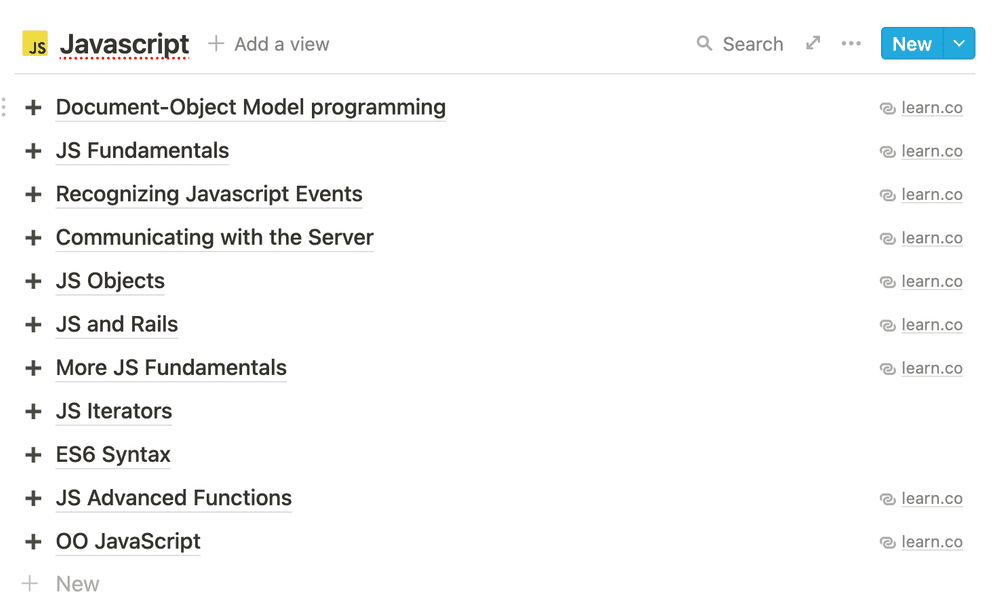Organizing Notes for Coding Bootcamp
You're upgrading your skills — spend some time getting organized so you start with a good foundation.
I started pre-work for my online software engineering program in April 2019, but I don't feel like I hit my stride in note-taking until a few months later. Identifying the best platform for me and then getting organized within that platform took time. Because I have good notetaking skills, the substance of my notes was more than sufficient, but when I revisit my notes I find them to be a little more like a pile of papers than an organized notebook.
When you're starting your own collection of notes for a coding bootcamp, you'll want to find the right software, establish a template or design pattern that all of your notes will follow, and then stick to it.
Platforms
For most of my professional career, I've used Evernote to keep track of notes digitally. I'm mid-career as a digital marketer, progressing into a career as a software engineer, so I have quite a bit of experience with the platform. I started taking notes in Evernote, but quickly decided that its handling of code wasn't going to meet my needs. Evernote formats code into a monospace font, but it doesn't color the code so it's not very easy to scan when you're reviewing.
I did like using Markdown formatting, so that's what I sought in my next program. I tried Bear and Boostnote. Bear is nice because it's a beautiful user interface. Boostnote is open source and built for developers. I could also sync it between platforms using Google Drive which I liked.
Then, I was chatting with a friend who works in bitcoin and he said, "Have you tried Notion? People on my twitter love it. I should say, VCs who invested in them love it. They might be biased."
It turns out that Scott and the VCs he follows on Twitter were right to suggest Notion. Very quickly it became my platform of choice. It even imported those old notes from Evernote. Convenient!
Design Patterns
As I started taking notes using Notion, I experimented with a few different patterns to organize my notes. What ultimately worked for me was to take notes following a similar outline of the modules at my coding bootcamp. I attended Flatiron School so obviously this works well for Flatiron, but I would imagine any boot camp has some structure for its program that could be translated into a template for organizing notes.
I have a Flatiron workspace in Notion and then a Notes page within that workspace. For each of the five modules in my program, I created an inline link database on the Notes page: Procedural Ruby, Sinatra, Ruby on Rails, Javascript, React. I also created a new database for certain topics that didn't rise to the level of a module but stood out from the content of the module that they were contained in: RegEx, SQL, Bash and Git, HTML and CSS.
Within those databases, I created a page for every section of lessons within the module. I added a URL property to each database and used that field to link my notes to the first lesson in the section.

As I worked through the lessons, each lesson had an H1 heading on the section page in the module database. I've liked this system because it's easy to go back and scroll through notes without a lot of clicking.
Photo by Ian Schneider on Unsplash